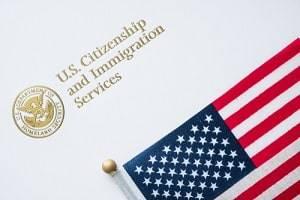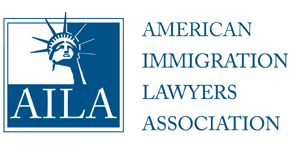What Is the New Public Charge Rule?

On Monday, February 24, 2020, the U.S. Citizenship and Immigration Services (USCIS) is mandating the implementation of its new Public Charge Rule across the United States.
History
It has been part of immigration law since 1882 that those coming to the United States could not become a public charge, meaning that one emigrating to the United States could not expect the U.S. government to provide financial support to the intending immigrant. The term initially used was “professional beggars.”
Although the immigration law does not specifically state how to determine whether an intending immigrant is to become a public charge, the statute does note five criteria the government can consider when considering the financial wherewithal of an intending immigrant:
-
Age
-
Health
-
Family status
-
Financial assets and resources
-
Education and skills
This was a vague test that remained in place until 1996 when Congress mandated a modification of the public charge rule.
In 1996, Congress passed the Illegal Immigration Reform and Immigrant Responsibility Act and the Personal Responsibility and Work Opportunity Reconciliation Act. Although many changes to the immigration law were made upon the passage of these Acts, the one relating to the public charge created the legally enforceable Affidavit of Support, which we all know now as Form I-864.
The Affidavit of Support required that the Petitioner/Sponsor of the Intending Immigrant in almost all family-based cases sign an Affidavit of Support, which created a legally binding contract between the Petitioner/Sponsor and the Government and the Petitioner/Sponsor and the Intending Immigrant ensuring that the Petitioner/Sponsor would guarantee that the Intending Immigrant was not be become a public charge by taking government benefits and if certain government benefits were paid, the Petitioner/Sponsor would be responsible to the Government for the repayment of that money.
The Affidavit of Support essentially put the burden on the Petitioner/Sponsor to ensure that the Intending Immigration would not become a public charge. The New Public Charge Rule changes all of that and moves the focus to the Intending Immigrant.
Requirements of the New Public Charge Rule
Overview
The New Rule requires that a totality of the circumstances test be applied to make a prospective, forward-looking determination of whether an Intending Immigrant is likely to become a public charge at any time after admission to the United States. What this does is to put the burden on the Intending Immigrant to demonstrate that he or she has the ability to be financially independent in the United States after receiving residency.
Application
All applicants for adjustment of status are subject to this New Rule except for the following:
-
Refugees
-
Asylees
-
U Visa Applicants
-
VAWA Applicants
-
Special immigrant juveniles
-
T Visa Applicants
-
Applicants under the following acts: Cuban Adjustment Act, Nicaraguan Adjustment and Central American Relief Act, Haitian Refugee Immigration Fairness Act, and Cuban and Haitian Entrants
-
Amerasian immigrants
-
Afghan and Iraqi special interpreters
Determinations of Public Charge
USCIS will look at each case individually to determine whether the Intending Immigrant is likely at any time in the future to become a public charge. This involves a two-fold determination. The first is whether the Intending Immigrant has in the past received a qualifying public benefit and the second is whether at any time in the future the Intending Immigrant is likely to receive a public benefit.
Has Received Public Benefits
If an Intending Immigrant has received a public benefit for 12 months out of a 36-month period, that person is inadmissible as a public charge. The following programs would disqualify an Intending Immigrant:
1. Supplemental Security Income (SSI)
2. Temporary Assistance for Needy Families (TANF)
3. Any other federal, state, or local cash benefit programs (i.e., general assistance)
4. Supplemental Nutrition Assistance Program (SNAP, i.e., food stamps)
5. Section 8 Housing Assistance under the Housing Choice Voucher Program
6. Section 8 Project-Based Rental Assistance (including Moderate Rehabilitation)
7. Medicaid
8. Public Housing under Section 9 of the U.S. Housing Act of 1937
Excluded from this list of benefits are the following programs:
1. Emergency Medicaid
2. Services provided under the Individuals with Disabilities Education Act
3. School-based services
4. Benefits received by individuals under age 21
5. Benefits received by pregnant women
Also excluded from this prong of the rule are military families and those becoming U.S. citizens immediately upon acquisition of the green card.
Likely to Receive Public Benefits
This prong of the rule is far more complicated than the bright-line test enumerated above. There are now seven (7) factors that the adjudicators must analyze in order to determine whether the Intending Immigrant is likely in the future to become a public charge. They are:
1) Age
Those Intending Immigrants of working age (roughly 18 to 67 years of age) are viewed favorably since presumably, they will be able to work and support themselves.
2) Health
The Service will review whether the Intending Immigrant has a medical condition that might impair his/her ability to work and earn a living and which would require costly medical treatment for which the Intending Immigrant might not be able to pay.
3) Family Status
The Service will be looking at the size of the household to determine whether the household’s assets and earning potential is sufficient for the number of people being supported.
4) Assets, Resources, and Financial Status
The Service will be looking for the household income to be above 125 percent of the poverty guidelines whether through earnings or in conjunction with assets. This inquiry will include the receipt/non-receipt of public benefits, credit scores, filing of bankruptcies, private health insurance, and liabilities incurred.
5) Education and Skills
The Service will examine whether the Intending Immigrant has education and skills sufficient to support him/herself. Some factors to be considered in addition to education are English skills, certificates and licenses, employment history, and whether he or she is a primary caregiver.
6) Prospective Immigration Status and Expected Period of Admission
The Service will look to the proposed length of residence in the United States and whether the Intending Immigrant’s assets and resources will be sufficient for the timeframe in question.
7) Affidavit of Support
The Service will continue to analyze the Petitioner/Sponsor’s Affidavit of Support for sufficient income and assets to guarantee the Intending Immigrant.
The Service has also identified several Heavily Weighted Negative Factors that would impact the Intending Immigrant. Not one of these alone is dispositive, but they will weigh heavily on the case. The four factors are:
1) Failure to work despite being authorized to do so. Those who are not full-time students and have work authorization will be viewed negatively if there is no current, past, or prospect of future employment.
2) Receiving, approved to receive, or certified to receive public benefits.
3) A diagnosis of a medical condition that would impair the Intending Immigrant’s ability to work and which would be so expensive that in the absence of medical insurance would be impossible to pay for.
4) A previous finding of inadmissibility based on public charge grounds.
Public Charge Bonds
Although the concept of a public charge bond is not new in immigration, their use up until now has been unheard of. Now, however, they are a cornerstone of the new Public Charge Rule. If the Service finds an Intending Immigrant to be borderline approvable—in other words, an Intending Immigrant who has no Heavily Weighted Negative Factors but who falls short on a few of the other factors—the posting of a bond will be required.
Bond amounts will be set by the Service and are a minimum of $8,100 in FY2020 with annual inflation adjustments. There is no method for reviewing or appealing the amount of the bond once it is set.
Change of Status and Extension of Status
There is a limited change for extension of stay and change of status applicants. Those who have received 12 months or more of public benefits during any 36-month period while in the nonimmigrant status being extended or changed into will not be eligible for the change or extension of status on the public charge ground. Otherwise, the foreign national will pass the public charge rule for the extension or change of status.
Contact an Itasca Immigration Lawyer
Contact an experienced DuPage County immigration attorney to help you navigate this new technical rule. This is not just an additional form to be completed. The New Public Charge Rule is a complicated determination of your loved one’s ability to remain in the United States. At Unzueta Law Group, P.C., we can help you navigate the New Public Charge Rule. Call our office today at 630-509-2363 to schedule a confidential consultation.
Source:
https://www.uscis.gov/greencard/public-charge



Contact Unzueta Law Group, P.C.
The use of the Internet or this form for communication with the firm or any individual member of the firm does not establish an attorney-client relationship. Confidential or time-sensitive information should not be sent through this form.
I have read and understand the Disclaimer and Privacy Policy.



